An Comprehensive Overview of PHP Course
Our PHP Training in Chennai offers a comprehensive PHP Course designed to build strong web development skills. Learn core programming, database integration, and advanced PHP techniques. Prepare for industry-recognized PHP Certification Course in Chennai and boost your career growth. With expert-led sessions, real-world projects, and dedicated PHP Placement support, our PHP Training ensures you gain the practical expertise needed to succeed in today’s competitive IT landscape. Gain hands-on experience with popular PHP frameworks like Laravel and CodeIgniter to enhance your coding proficiency. Flexible batch timings and personalized mentorship make our PHP Course in Chennai ideal for students, job seekers, and working professionals alike.
Additional Info
Exploring The Future Trends in PHP Training
- Integration with Modern Frameworks:
As PHP evolves, there’s a growing focus on mastering popular PHP frameworks like Laravel, Symfony, and Zend. Training will shift to teaching developers how to integrate PHP with these frameworks to build scalable and maintainable web applications. These frameworks offer tools for routing, authentication, and database management, which streamline development processes. PHP learners will need to understand how to leverage these powerful resources for building robust backend systems. The emphasis will be on increasing efficiency while maintaining code quality and security.
- API Development and RESTful Services:
With the rise of microservices architecture, API development using PHP will be essential. Training programs will include deeper insights into designing RESTful APIs with PHP, focusing on security, scalability, and performance. Students will learn about JSON handling, HTTP methods, and authentication techniques such as OAuth2. As companies move to mobile-first and cross-platform solutions, the demand for backend developers skilled in creating robust APIs is increasing. This trend will enable PHP developers to work across a variety of projects, from traditional websites to modern apps.
- Cloud Integration with PHP:
As businesses increasingly migrate to cloud services, PHP developers will need to learn how to integrate their applications with platforms like AWS, Google Cloud, and Azure. Training will include working with cloud-based storage, databases, and serverless functions. The focus will be on optimizing applications for the cloud environment, ensuring scalability, and reducing latency. Developers will also need to understand cloud security protocols and best practices for managing cloud resources efficiently. This trend helps PHP developers stay relevant in a rapidly changing tech landscape.
- PHP and Machine Learning:
The intersection of PHP and machine learning is a growing trend. Future training will explore how to use PHP alongside machine learning libraries and APIs, allowing developers to integrate AI features into their applications. By connecting PHP with tools like TensorFlow or integrating with external ML APIs, developers can add smart features like predictive analytics or recommendation engines. While PHP is not traditionally used for machine learning, training will empower developers to utilize this powerful combo in real-world applications. This trend offers new opportunities for PHP developers to venture into AI-driven projects.
- Advanced Security Practices:
As cyber threats become more sophisticated, PHP training will focus on advanced security practices, such as SQL injection prevention, XSS protection, and data encryption. Modern PHP training will include security-conscious coding techniques and teach developers how to build applications that are resistant to common vulnerabilities. Learners will also be trained on using tools like PHP CodeSniffer and OWASP's top security practices. The emphasis will be on secure authentication methods, role-based access control, and regular security updates. This trend ensures that PHP developers can build secure applications in an increasingly risky digital world.
- Serverless PHP Architecture:
Serverless computing is gaining popularity, and PHP developers will need to understand how to build applications without worrying about server management. Future PHP training will focus on serverless architecture platforms like AWS Lambda, where developers can deploy code in response to events without provisioning servers. This approach helps reduce operational costs and enhances scalability. Developers will learn how to work with serverless functions, ensuring they can build highly available and cost-efficient applications. Mastering this concept will make PHP developers adaptable to a new era of software development.
- Real-Time Web Applications:
The demand for real-time web applications, such as live chat systems or live data feeds, is increasing. PHP training will evolve to teach developers how to use technologies like WebSockets and PHP-based messaging systems to implement real-time communication. Courses will emphasize frameworks such as Ratchet or Pusher to handle real-time updates, enhancing user experiences. Developers will learn how to manage concurrent connections efficiently while ensuring smooth interactions. This trend opens up opportunities for PHP developers to create more engaging, dynamic web applications.
- PHP for Mobile App Backends:
As mobile app development continues to soar, PHP is increasingly being used for building backend services for mobile apps. Training will focus on designing APIs and backend systems that work seamlessly with mobile frontends. PHP's role in managing user data, authentication, and real-time interactions will be covered in depth. Developers will learn how to structure their PHP code to be efficient and lightweight for mobile consumption. This trend ensures that PHP remains a vital backend technology, even in mobile-centric ecosystems.
- Continuous Integration and Deployment (CI/CD):
Future PHP training will emphasize the integration of PHP with CI/CD pipelines to automate testing, deployment, and integration. This practice will ensure that PHP applications can be continuously updated and deployed without downtime. Courses will teach developers how to configure Jenkins, GitLab CI, and other tools for PHP projects. Learners will explore best practices for automated testing, version control, and rolling out new features smoothly. As DevOps practices become more widespread, this skill set will be critical for PHP developers working in agile environments.
- PHP and Blockchain Integration:
As blockchain technology continues to grow, there’s an increasing need for PHP developers who can integrate blockchain functionalities into applications. Training will focus on how to use PHP to interact with blockchain platforms, enabling the creation of decentralized applications (dApps). Developers will learn how to implement blockchain transactions, smart contracts, and data encryption within PHP applications. This trend offers new avenues for PHP developers to dive into emerging technologies and provide innovative solutions in industries like finance and supply chain management.
Essential Tools and Technologies in PHP Training
- PHP Frameworks:
PHP frameworks like Laravel, Symfony, and Zend are integral to modern PHP development. They provide pre-built modules and libraries to streamline coding, ensuring faster development and more secure applications. Laravel, for instance, simplifies routing, authentication, and ORM (Object-Relational Mapping) for database management, making it highly popular. Symfony is known for its flexibility and use in large-scale enterprise applications. Zend offers robust performance for complex projects, making these frameworks essential tools for PHP developers looking to create scalable, maintainable web applications.
- Composer:
Composer is a dependency management tool for PHP that automates the process of managing libraries and packages. It simplifies integrating third-party libraries and ensuring that the correct versions are used in projects. Composer allows developers to easily declare the libraries their project needs and install them automatically. It also handles version conflicts and optimizes autoloading for faster application performance. Understanding Composer is crucial for PHP developers as it greatly enhances project management and modular development practices.
- Xdebug:
Xdebug is a powerful debugger and profiler for PHP. It helps developers troubleshoot issues in their code by providing detailed error logs and stack traces. Xdebug allows for step debugging, enabling users to pause execution at specific breakpoints and inspect variables in real time. Profiling with Xdebug helps to identify performance bottlenecks by analyzing the time spent in each function or process. In PHP training, Xdebug is a vital tool to help developers understand code execution flow and optimize their applications for better performance.
- PHPMyAdmin:
PHPMyAdmin is a widely used web-based tool for managing MySQL databases. It provides an intuitive graphical interface to perform database operations like creating, modifying, and querying tables, without writing complex SQL queries. PHPMyAdmin simplifies the management of database records, permissions, and configurations, making it a valuable tool in PHP development. Training in PHP often involves learning how to interact with PHPMyAdmin to manage databases efficiently. This tool makes database management less daunting, especially for beginners.
- MySQL/MariaDB:
MySQL is one of the most popular relational database management systems (RDBMS) used with PHP. It allows developers to store and retrieve data efficiently, supporting complex queries and transactions. MariaDB is a fork of MySQL, offering similar functionality with added performance improvements and open-source freedom. Both are integral parts of PHP development, especially in creating data-driven applications. In PHP training, understanding how to interact with these databases using SQL queries and PHP code is fundamental to building dynamic websites and applications.
- Docker:
Docker is a containerization platform that simplifies deploying applications in isolated environments. It allows PHP developers to package their applications along with their dependencies into containers, ensuring consistent environments across development, testing, and production. Docker streamlines the process of setting up PHP development environments, enabling easy testing and collaboration among teams. With Docker, PHP developers can avoid issues related to environment configuration differences. Learning Docker is essential for PHP developers working in modern DevOps workflows and continuous integration pipelines.
- Git & GitHub:
Git is a version control system that tracks changes in source code, making collaboration among developers seamless. GitHub, built on top of Git, is a cloud-based platform that allows teams to store, share, and collaborate on PHP projects. It enables developers to work on different branches, resolve conflicts, and track changes over time. Git and GitHub are indispensable for modern PHP development, allowing teams to manage codebases efficiently, roll back to previous versions, and collaborate on large-scale projects. Mastering Git commands and GitHub workflows is a must for any PHP developer.
- PHPStan:
PHPStan is a static analysis tool for PHP that helps identify potential bugs and errors in the code without executing it. It checks for type errors, undefined variables, and other issues that can affect the stability of PHP applications. PHPStan helps developers improve code quality by enforcing strict typing and providing actionable insights into how to fix issues. As PHP projects grow in complexity, PHPStan ensures that developers maintain code that adheres to best practices, improving long-term maintainability. It's an essential tool for any developer focused on writing clean, reliable PHP code.
- Behat:
Behat is a behavior-driven development (BDD) testing framework for PHP. It allows developers to write tests in plain English using Gherkin syntax, making it easy for non-technical stakeholders to understand test scenarios. Behat encourages collaboration between developers, business analysts, and testers to ensure the software meets the required business goals. In PHP training, Behat is introduced as a tool for creating automated acceptance tests, improving the quality and reliability of web applications. It ensures that the development process remains aligned with user expectations and requirements.
- Vagrant:
Vagrant is a tool for building and managing virtualized development environments. It allows developers to create reproducible development environments, making it easier to work on PHP projects across different systems. Vagrant ensures that all developers on a team have the same environment, which reduces configuration-related issues. It integrates with tools like VirtualBox to create virtual machines, providing a consistent environment for development, testing, and deployment. Learning Vagrant helps PHP developers ensure that their local setups mirror production environments, improving workflow efficiency and reducing "it works on my machine" problems.
Roles and Responsibilities in PHP Training
- PHP Trainer/Instructor:
A PHP trainer's primary role is to design and deliver comprehensive training programs for learners at different skill levels. They must create course materials, such as lectures, assignment and projects, that align with industry standards. The trainer is responsible for breaking down complex PHP concepts into digestible lessons, providing hands-on exercises, and guiding students through real-world applications. They should assess the progress of learners, offer feedback, and ensure that students understand key concepts. A good trainer also stays updated with the latest PHP developments and frameworks to keep the curriculum relevant.
- Course Content Developer:
Course content developers are responsible for creating and structuring the learning material for PHP training courses. They design syllabi, prepare lessons, quizzes, and coding exercises, ensuring the content is up-to-date and meets industry demands. They need to understand the needs of learners, whether beginners or advanced, and tailor content accordingly. The content must be structured to promote step-by-step learning while maintaining clarity. They also collaborate with trainers to align theoretical knowledge with practical skills in PHP development.
- PHP Web Developer Trainer:
A PHP web developer trainer focuses on educating students on building dynamic web applications using PHP. They must cover core PHP concepts like variable, loops and function as well as more advanced topic like object-oriented programming (OOP) and MVC (Model-View-Controller) frameworks. Their responsibility is to impart practical skills, such as integrating PHP with HTML, JavaScript, and MySQL, to create fully functional web apps. Trainers also teach best practices in code organization, security, and performance optimization. A PHP web developer trainer also provides mentorship and ensures that learners are ready for real-world projects.
- PHP Framework Specialist:
In PHP training, the role of a framework specialist is to educate learners on using popular PHP frameworks like Laravel, Symfony, and CodeIgniter. They guide students on how to use these frameworks for building scalable, secure, and maintainable applications. This role involves teaching advanced topics such as routing, database migration, authentication, and API development using these frameworks. The specialist also helps learners navigate the ecosystem of extensions and packages available within each framework. They ensure that students grasp the frameworks' architecture and develop skills for modern PHP-based web development.
- Assessment and Evaluation Expert:
Assessment and evaluation experts in PHP training are responsible for creating and managing the evaluation system. This includes setting up assignments, quizzes, and practical exams that test a student’s understanding of PHP concepts. They analyze the results to identify areas where students might need additional support or focus. Their role also involves providing constructive feedback on assignments and helping students improve their coding skills. Assessment experts ensure that the evaluations are aligned with the learning objectives and accurately reflect students' progress in mastering PHP.
- PHP Course Coordinator:
A PHP course coordinator manages the logistical aspects of the PHP training program. They ensure that classes run smoothly, schedule sessions, handle student enrollment, and manage communication between instructors and students. The course coordinator also tracks the attendance and progress of students, making sure that they adhere to the course timeline. They may work closely with trainers to ensure that the curriculum is followed effectively and make adjustments if necessary. Additionally, they provide student support and address any issues that arise during the course, enhancing the overall training experience.
- PHP Developer Mentor:
A PHP developer mentor guides students through hands-on learning by providing advice, technical support, and career guidance. They help learners understand real-world applications of PHP by mentoring them on building projects, debugging, and optimizing code. Mentors share their own industry experience, helping students navigate challenges and develop problem-solving skills. They also provide personalized feedback on projects and offer suggestions for improvement. The mentor's role is to inspire students and help them grow into capable PHP developers by fostering both technical and professional development.
- Technical Support Specialist:
The technical support specialist in PHP training is responsible for assisting students with technical issues related to their PHP development environment. Whether it's problems with local server setups, database connections, or errors in PHP code, the support specialist offers timely solutions. They guide students through the troubleshooting process, ensuring that technical issues don't hinder the learning experience. They may also create tutorials or FAQs to help students resolve common problems independently. Their role is essential in maintaining learning process and keeping students engaged.
- PHP Project Supervisor:
A PHP project supervisor oversees the development of student projects during the training program. They ensure that students apply PHP concepts to create functional and innovative web applications. The supervisor provides guidance on project structure, coding practices, and helps troubleshoot issues students encounter during project development. They also offer advice on testing, debugging, and improving performance. This role is essential in giving students a sense of how PHP is used in real-world environments and ensuring that projects meet industry standards.
- PHP Training Program Manager:
The PHP training program manager is responsible for overseeing the entire training initiative, from planning and development to execution They coordinate between trainers, content developers, and other stakeholders to ensure that the program meets organizational goals and industry needs. The manager also evaluates the success of the training program, gathers feedback from students, and implements improvements. They are responsible for managing resource and ensuring that the program stays up-to-date with the latest trends in PHP development. This role require excellent leadership and organizational skills to ensure a high-quality learning experience.
Top Companies Seeking PHP Professionals
- Tata Consultancy Services (TCS):
Tata Consultancy Services (TCS) is a global IT services and consulting company that often hires PHP professionals for web development, application maintenance, and enterprise-level solutions. TCS provides a variety of opportunities for PHP developers to work on projects in different sectors, including finance, healthcare, and retail. With a strong focus on digital transformation, TCS offers developer the chance to work on cutting-edge technologies and frameworks like Laravel and Symfony. The company values problem-solving skills and offers a dynamic environment for growth. TCS also invests in continuous learning and development programs for its employees.
- Accenture:
Accenture is a professional services company that frequently seeks PHP developers to work on enterprise software solutions, web applications, and cloud-based services. The company provides a collaborative environment where developers can work on innovative projects for clients in various industries. Accenture emphasizes agile methodologies and modern framework offering PHP professionals the opportunity to enhance their skills in a fast-paced setting. With a commitment diversity and inclusion, Accenture provide a supportive work culture for tech talent. PHP developers at Accenture also benefit from access to global resources and continuous career advancement opportunities.
- Wipro:
Wipro is a leading IT service company that actively seeks PHP professionals to develop scalable web applications and backend system As part of its digital transformation efforts, Wipro focuses on integrating cutting-edge technologies into its PHP projects, such as artificial intelligence and blockchain. PHP developers at Wipro work on a wide range of projects for clients across industries, including telecommunications, banking, and retail. The company offers dynamic work environment with opportunitie to collaborate on global projects. Wipro also provides training and development programs to help PHP developers stay ahead of industry trends.
- Infosys:
Infosys is a multinational IT services company that regularly hires PHP developers to work on both small-scale and large enterprise-level projects. PHP professionals at Infosys can expect to work on a variety of solutions, from web applications to cloud-based services. The company values innovation and encourages developers to adopt the latest PHP frameworks and technologies. Infosys provides extensive learning and growth opportunities through in-house training, mentoring, and certifications. PHP developers at Infosys often have the chance to work with global teams and contribute to high-impact projects for large enterprises.
- Cognizant:
Cognizant is leading provider of IT service, and its demand for PHP professionals spans web development, e-commerce solutions, and enterprise applications. PHP developers at Cognizant work on transforming business processes through innovative digital solutions, ensuring that client applications are both robust and scalable. The company emphasizes working with modern PHP frameworks like Laravel, Symfony, and Zend. Cognizant’s global presence provides developers with the opportunity to work on projects for some of the world’s largest companies. The company offers excellent career growth prospects and skill-enhancing opportunities in the ever-evolving world of PHP development.
- Capgemini:
Capgemini in consulting, technology services, and digital transformation, is frequently on the lookout for skilled PHP developers. The company offers PHP professionals the opportunity to work on web and mobile applications, using the latest technologies to create solutions for clients worldwide. Capgemini’s focus on innovation and customer satisfaction means developers are constantly exposed to new challenges and technologies. PHP developers at Capgemini work within agile frameworks and often collaborate with multidisciplinary teams.
- IBM:
IBM is known for its advanced technologies and cloud solutions, and it frequently hires PHP developers to work on its enterprise-level applications. IBM’s PHP professionals contribute to building secure, high-performance web apps that integrate with AI, blockchain, and IoT technologies. The company offers a collaborative environment where PHP developers work alongside other specialists to drive technological innovation. PHP developers at IBM can work on exciting projects across industries like healthcare, finance, and education. The company also encourages continuous professional development and offers extensive resources for growth and innovation.
- Oracle:
Oracle, a leader in database management systems and enterprise software, often hires PHP developers to work on web applications that integrate seamlessly with Oracle's extensive suite of products. PHP professionals at Oracle have the opportunity to design, develop, and optimize applications that interact with databases, cloud services, and enterprise solutions. The company supports a culture of innovation, offering its PHP developers access to cutting-edge technologies like machine learning and cloud infrastructure. Oracle's emphasis on high-quality code, security and performance provides PHP developers with a challenging and rewarding work environment.
- Zoho Corporation:
Zoho Corporation, a cloud software company, regularly seeks PHP developers to work on its suite of business tools, including CRM, email, and project management solution. PHP professionals at Zoho are tasked with creating efficient and scalable web applications, often utilizing frameworks like Laravel and CodeIgniter. The company places a strong emphasis on building intuitive, user-friendly products, giving PHP developers the chance to contribute to high-impact project. Zoho fosters a culture of creativity and autonomy, encouraging developers to come up with innovative solutions. Additionally, Zoho offers employees flexible work arrangements and opportunities for career advancement.
- Fiverr:
Fiverr, a global freelancing platform, frequently hires PHP developers to help build and maintain its web applications, including its core marketplace and backend systems. Developers at Fiverr work in an agile environment, where they collaborate with cross-functional teams to implement new features and improve the user experience. The company values flexibility, allowing PHP professionals to explore a variety of tasks ranging from API integration to performance optimization. Working at Fiverr provides an opportunity to directly contribute to the growth of a rapidly expanding platform. PHP developers at Fiverr also benefit from a creative, fast-paced work culture with room for professional development.
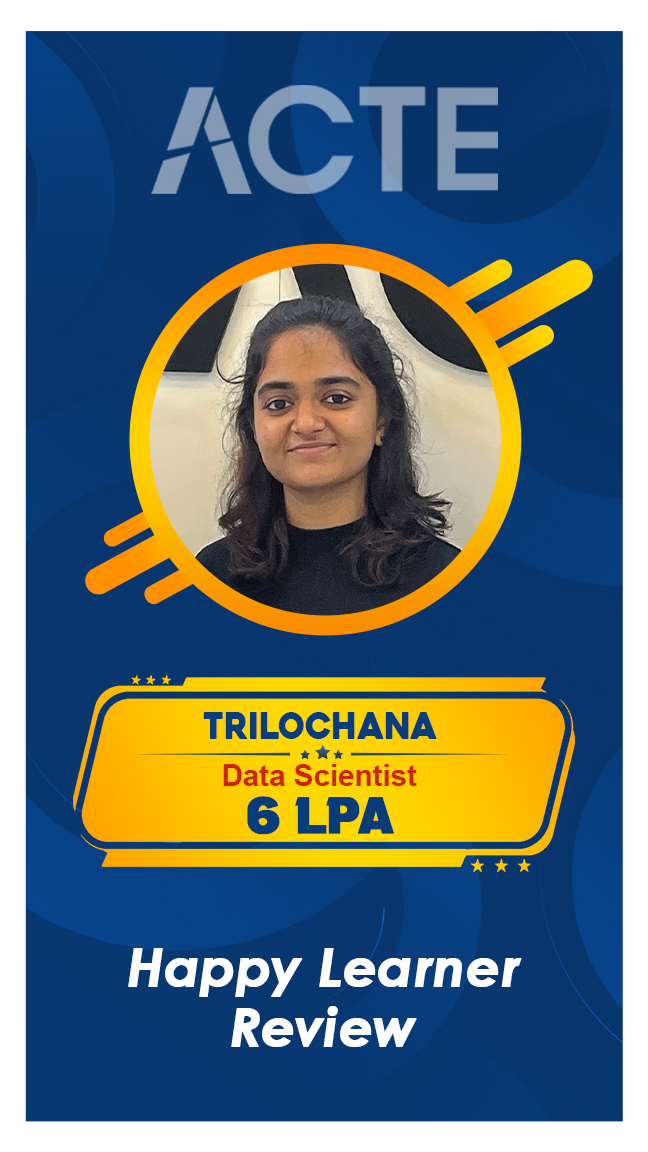
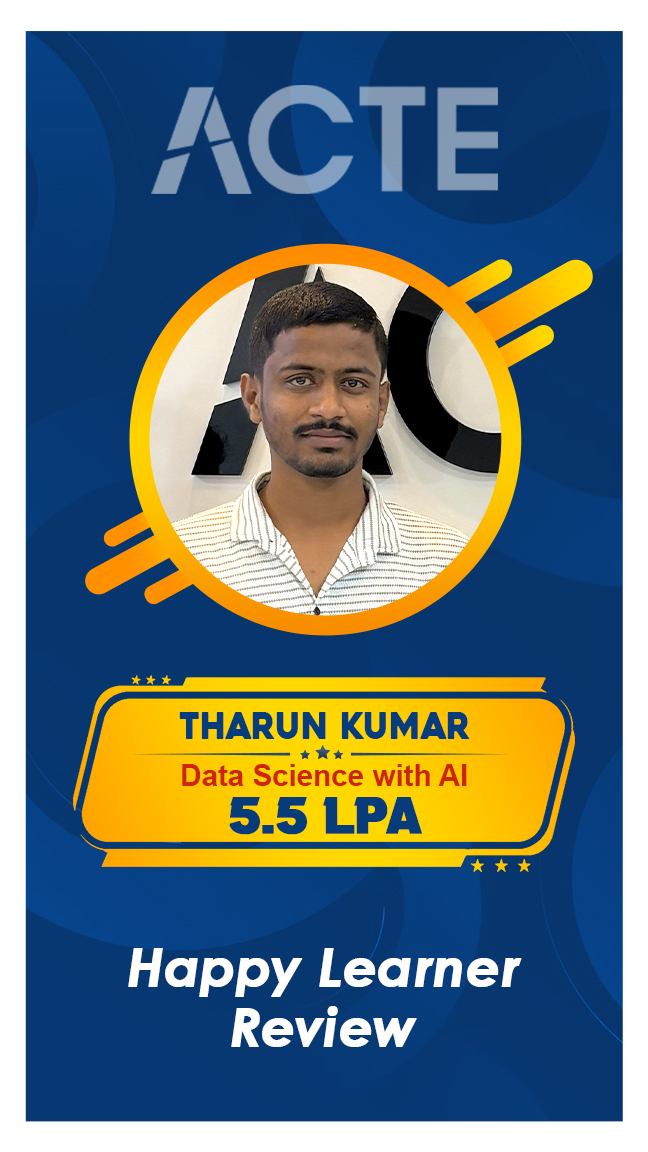
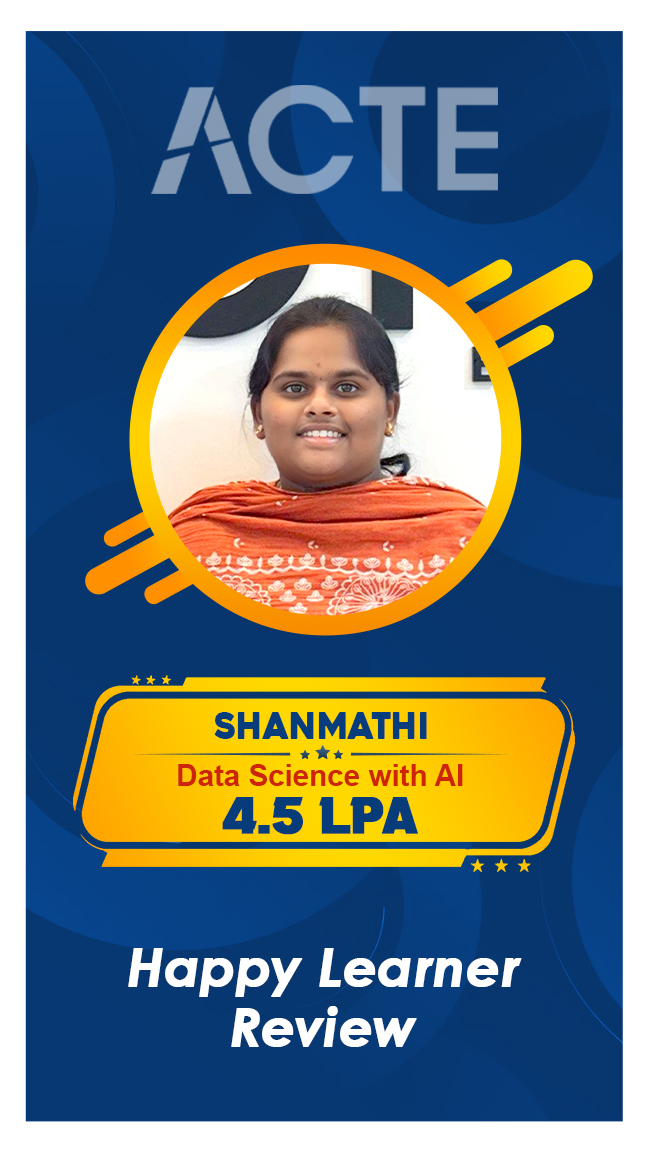

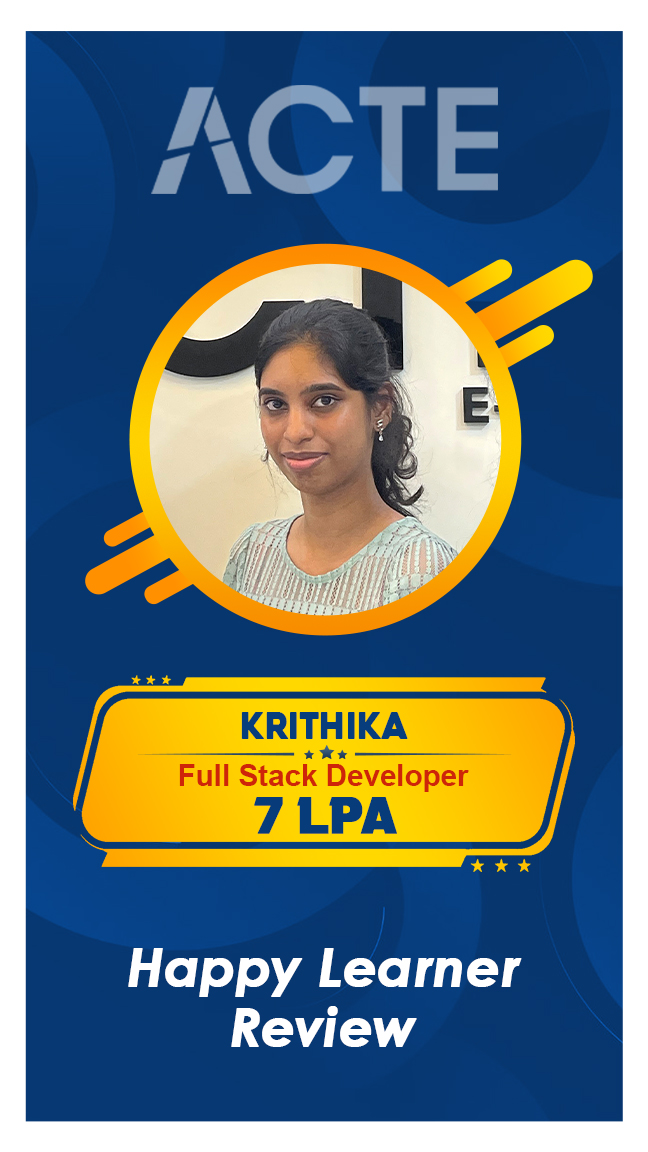
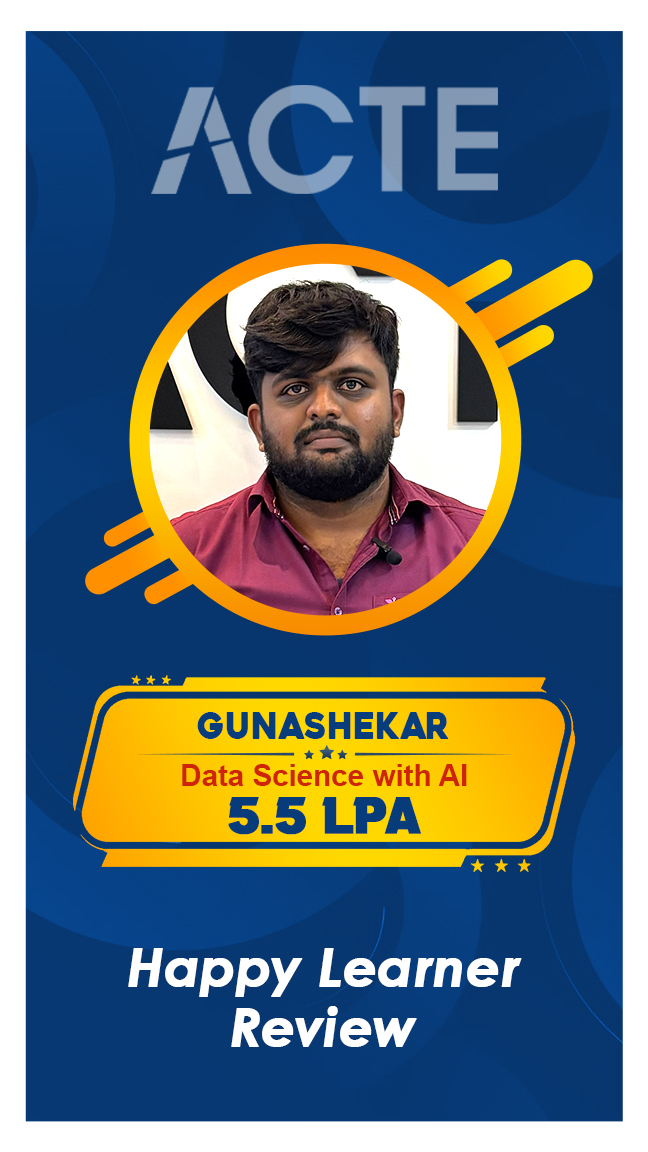
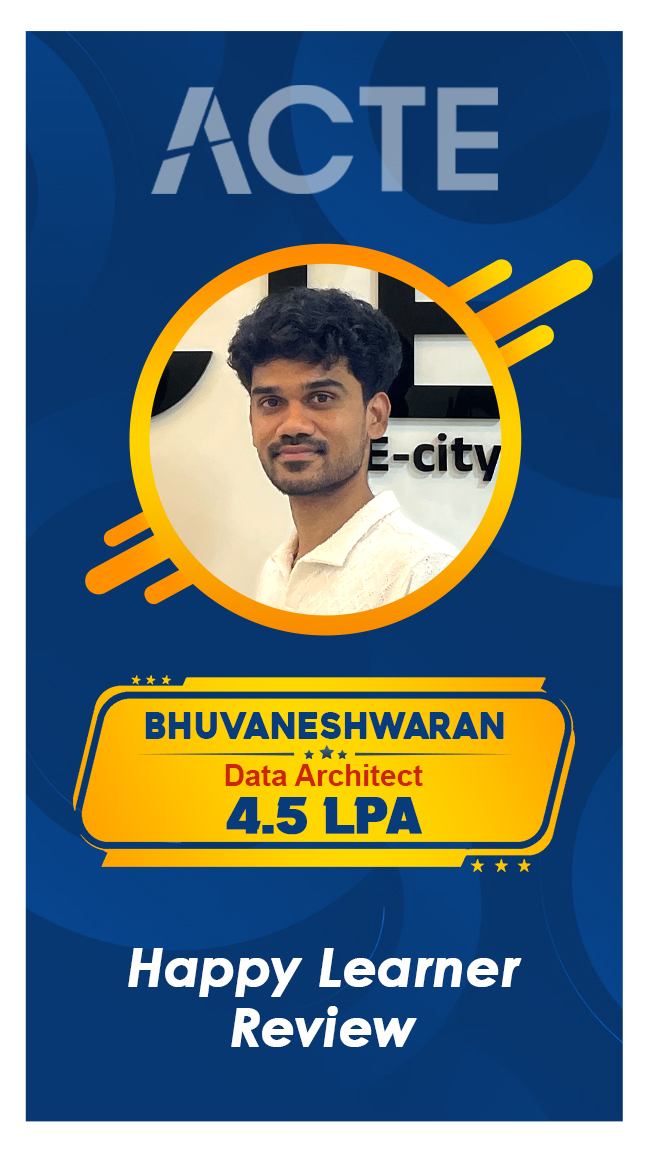





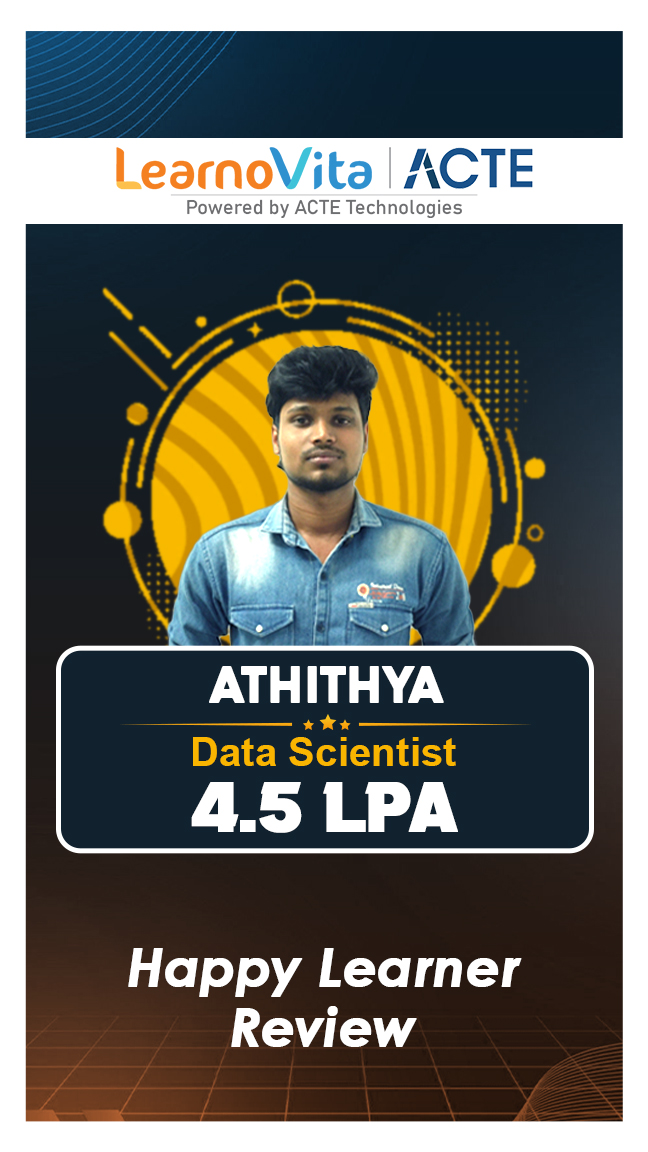






 Fees Starts From
Fees Starts From



















 Regular 1:1 Mentorship From Industry Experts
Regular 1:1 Mentorship From Industry Experts




